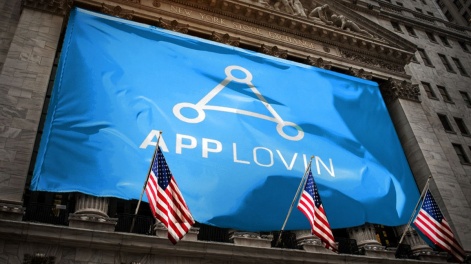Master the Meta is a free newsletter focused on analysing the business strategy of the gaming industry.
MTM and PG.biz have partnered on a weekly column to not only bring you industry-moving news, but also short analyses on each.
To check out this week’s entire meta, visit www.masterthemeta.com.
There’s been significant talk about AppLovin recently, which raised $2 billion in its IPO on Thursday (and since has seen its stock price drop 25 per cent).
We covered the S-1 last month, the Deconstructor of Fun podcast discussed the company, and InvestGame shared some takeaways, too.
However, now that AppLovin - which rocks the ticker “APP” - is officially public, let’s take a moment to reflect on the past, present, and future of this business.
As a refresher, AppLovin owns 200 plus apps (essentially all games) and offers a collection of ad-tech solutions that help mobile app developers better grow and monetize their businesses.
The company divides its revenue streams into two distinct categories: business revenue and consumer revenue.
“Business revenue” - fees paid by mobile app advertisers for software/ad inventory - was nearly everything only three years ago but now represents 49 per cent of total revenue. “Consumer revenue” - which comes from in-app purchases of first-party apps - is now the largest revenue driver (largely due to acquisitions and partnerships). It’s a fascinating evolution. AppLovin has…
- Narrowed in on games. AppLovin doesn’t call itself a gaming company, but it almost entirely is. 71 per cent of business revenue and (essentially) all of its consumer revenue comes from games.
- Focused on vertical integration. AppLovin could’ve stayed a pure ad-tech player, but it widened its opportunity and accelerated growth by folding in content as well. Many industry insiders claim a conflict of interest, which is partially true (and notable as more consolidation between content providers and ad-tech occurs), but it was certainly the right business decision. Interestingly, AppLovin is reverse engineering into something similar-ish to a Zynga, which is very much a games business but also building its own ad-tech capabilities.
- Leaned into M&A. Since 2018, AppLovin spent over $2 billion on 16 acquisitions. Half of that was on Adjust, but most of the acquired companies were gaming studios like Machine Zone, ZenLife and more. Not every deal likely created value, but as a whole, it strengthened AppLovin as an ecosystem and inorganic/acquisitive growth became a major driver.
- Built a flywheel. Most self-proclaimed flywheels aren’t actually flywheels, but there’s some truth to the term here. More developers equal more users/wider distribution equals better insights/improved software equals more developers. That’s a textbook data network effect, which offers a modest advantage.
In reality, as first-party consumer revenue takes share, the flywheel (if it still exists) becomes more about leveraging insights to determine who to acquire, which adds developers, users, etcetera. Much has been said about “content fortresses,” which in AppLovin’s case means compiling and scaling a self-reinforcing tech plus content ecosystem that’s hard to copy or break - especially as platform rules change.

All in all, AppLovin has done a good job evolving as a business in order to tackle a bigger, more sustainable and more proprietary opportunity. The management team, led by co-founder and CEO Adam Foroughi, aggressively evolved in ways that most other ad tech companies probably couldn’t have pulled off, which should be respected.
As we look to the future, here are a few other factoids to keep in mind:
- Between insiders plus private equity firm KKR, AppLovin is a controlled company
- AppLovin currently generates 15 per cent free cash flow margins (solid and will enlarge)
- Acquisitions (and therefore growth in general) are tough to predict but the $2 billion raised could be deployed somewhat quickly.
Between different types of acquisitions, a changing mix in revenue, and leaders who are clearly willing to move in new directions, it’s hard to know exactly how AppLovin grows and performs from here.
There’s some risk to that - bad acquisitions, slowing organic growth, ad-tech shenanigans, disgruntled users, etcetera. - but that uncertainty could also unmask new opportunities and unforeseen upside. It’ll be fascinating to watch.
To check out this week’s entire meta, visit www.masterthemeta.com.
Master the Meta is a newsletter focused on analysing the business strategy of the gaming industry. It is run by Aaron Bush and Abhimanyu Kumar. To receive future editions in your inbox sign up here:






















